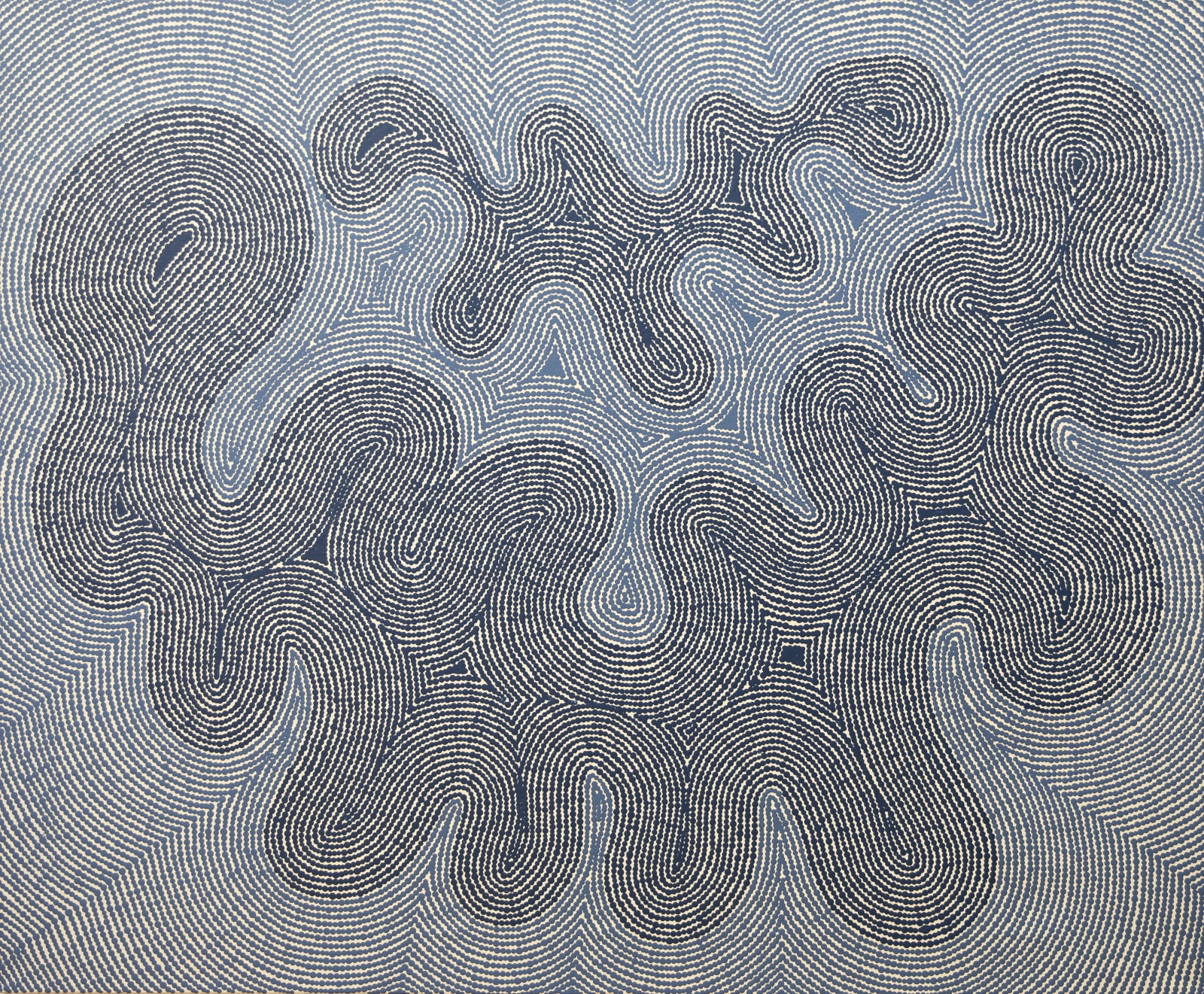Manta Tjula – Soft Earth: New works from Ernabella
Past exhibition
Tjulyata Kulyuru Australian, Pitjantjatjara, b. 1978
Tjukula/Waterholes, 2021
acrylic on linen
120 x 100 cm
518-21
For the Pitjantjatjara people living in the desert, knowledge of their water sources was critical to their survival. This resulted in an intimate understanding of the landscape which continues today....
For the Pitjantjatjara people living in the desert, knowledge of their water sources was critical to their survival. This resulted in an intimate understanding of the landscape which continues today. Deep familiarity with the topography of their country and the way rain would interact with the land ensured constant sources of water could be found. 'Tjukula' means rock holes, which are found with surprising frequency in the Musgrave ranges. Between visits, Anangu (people) would use rocks and spinifex construction to guard these from spoilage by animals and, particularly in more recent times, from feral and stock animals, cattle, camels, horses and donkeys.
